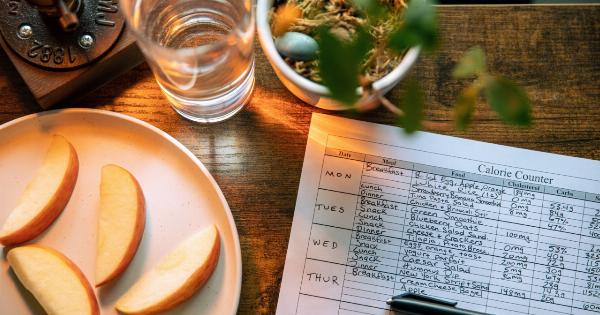Diet sodas have been marketed as a healthier alternative to regular sodas, especially for children. However, recent studies have suggested that these artificially sweetened beverages may not be as beneficial as initially thought.
In fact, a new study has found that kids consume more calories when they drink diet sodas. This unexpected finding has raised concerns among parents and health experts alike. This article will delve into the details of the study and explore its implications.
Understanding the Study
The study, conducted by researchers at a renowned children’s health institute, focused on the dietary habits of a large group of children aged between 6 and 12.
The participants were divided into two groups: one group was allowed to consume sugary beverages, while the other group was given diet sodas. The study tracked the calorie intake of both groups over a four-week period.
Results
The study revealed astonishing results. Contrary to popular belief, children who consumed diet sodas consumed significantly more calories compared to those who consumed sugary beverages.
On average, the diet soda group consumed around 200 more calories per day than the sugary beverage group. The reason behind this unexpected finding has perplexed researchers and calls for further investigation.
Impact of Artificial Sweeteners
One possible explanation for the increased calorie intake among kids who consumed diet sodas is the impact of artificial sweeteners on appetite.
While artificial sweeteners contain little to no calories, studies have shown that they can actually increase hunger and cravings for sweet and high-calorie foods. This phenomenon is thought to be a result of the brain’s response to sweetness without the accompanying calories. Consequently, children who consume diet sodas may be inadvertently driven to consume more calories through other food sources.
Psychological Factors
Psychological factors may also be at play in the observed increase in calorie consumption. Knowing that they are consuming a calorie-free beverage, children who drink diet sodas might feel more inclined to indulge in other treats or larger portions.
This mindset can lead to a compensatory effect, where kids end up consuming more calories overall.
Parental Influence
Another important aspect to consider is parental influence. Parents often perceive diet sodas as a healthier choice for their children and may allow them to consume diet sodas more frequently or in larger quantities.
This misperception stems from the belief that diet sodas do not contribute to weight gain or other health issues. Unfortunately, this assumption may lead to unintended consequences, as demonstrated by the study.
Health Implications
Consuming excess calories, regardless of the source, can have detrimental effects on children’s health. Overconsumption of calories can lead to weight gain and increase the risk of obesity, diabetes, and other related complications.
Additionally, children who consume diet sodas instead of more nutritious beverages such as milk or water may miss out on essential nutrients, further compromising their overall health and well-being. Therefore, the findings of this study raise concerns about the long-term health impact of children consuming diet sodas.
Addressing the Issue
Given the potential adverse effects of diet sodas on children’s calorie consumption, it is imperative for parents, healthcare professionals, and regulatory bodies to address this issue.
Education campaigns targeting parents should provide accurate information about the potential negative consequences of diet sodas. Parents should be encouraged to limit their children’s intake of artificially sweetened beverages and opt for healthier alternatives such as water, milk, or naturally flavored drinks.
The Need for Further Research
While this study sheds light on the concerning correlation between diet sodas and increased calorie consumption in children, further research is needed to understand the underlying mechanisms and establish a definitive cause-effect relationship.
Future studies should explore the long-term impact of consuming diet sodas, especially in relation to weight management and overall health.
Conclusion
The study’s findings indicate that children who consume diet sodas consume more calories than those who consume sugary beverages.
While the exact reasons behind this discrepancy are yet to be fully understood, it is clear that diet sodas may not be the calorie-free solution they are marketed to be. Awareness and education are crucial in order to prevent children from consuming excess calories and experiencing potential health risks as a result.






























